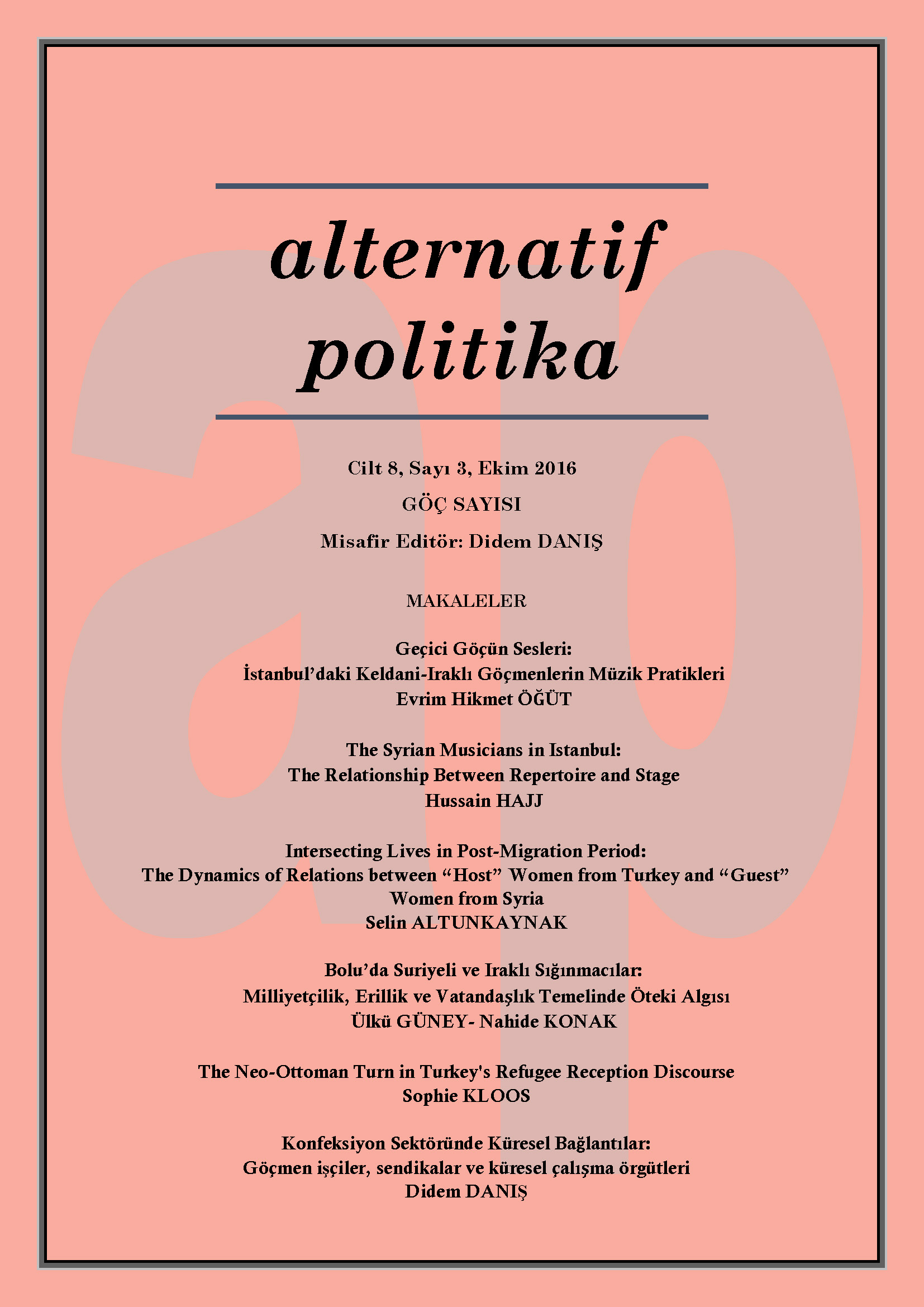Intersecting Lives in Post-Migration Period: The Dynamics of Relations Between “Host” Women from Turkey and “Guest” Women from Syria
INTERSECTING LIVES IN POST-MIGRATION PERIOD: THE DYNAMICS OF RELATIONS BETWEEN “HOST” WOMEN FROM TURKEY AND “GUEST” WOMEN FROM SYRIA
Author(s): Selin AltunkaynakSubject(s): Politics / Political Sciences, Gender Studies, Sociology, Migration Studies, Sociology of Politics
Published by: Rasim Özgür DÖNMEZ
Keywords: Forced Migration; Gender; Insider-Outsider; Stranger; Syrian Refugees
Summary/Abstract: Turkey undertakes an important role in responding to the Syrian humanitarian crisis by hosting the largest number of refugee population around the world through opening its borders to Syrian refugees subsequent to the conflict in Syria after 2011. Turkey has been managing the refugee phenomenon at the beginning with a discourse of ‘guest’. The temporary protection regime for Syrian refugees in Turkey ratified in October 2014 on the one hand, and the discourse of ‘guest’ on the other, constitute significant basis to the sociological aspect of the matter at hand. By nature, the terms ‘host’ and ‘guest’ imply an element of temporariness. Against this backdrop, there is a pressing need to focus on the fact that over 2.5 million refugees settled in the urban areas will not be returning shortly to their country of origin even if the war is over now. Given the magnitude of the refugee population, the real question is then the adaptation of this ‘stranger’ group which has settled in the country and likely to stay in the long term within the urban context.This study, based on gendered perspective, aims to explore the factors determining the perception of the insider for the outsider and vice versa within the scope of Simmel’s ‘stranger’ typology. Following Simmel’s definition of the stranger, in this article I consider Syrian refugees as people who comes today and stays tomorrow. The methodology of this study is based on in-depth interviews with refugee women from Syria and native women in Turkey as well as focus group meetings in Hatay and Gaziantep provinces, conducted in the framework of my PhD thesis.
Journal: Alternatif Politika
- Issue Year: 8/2016
- Issue No: 3
- Page Range: 488-504
- Page Count: 17
- Language: English

